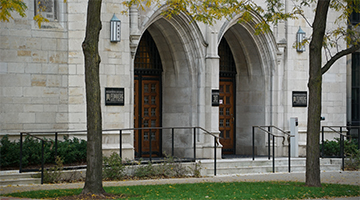
Seeking Exceptional Faculty Candidates
Northwestern is hiring from all disciplines with expertise in any of the following research areas: Cancer, Cardiovascular and Metabolic Health, and Brain, Mind and Behavior.
The next round of applications for faculty positions will be reviewed beginning November 1, 2023. Deadline for applications is October 31, 2023 to be considered for Summer/Fall 2024 faculty appointments.
Explore open Faculty positions Explore open Postdoctoral Fellow positions
What We Do

Through a grant from the National Institutes of Health (NIH) Common Fund’s Faculty Institutional Recruitment for Sustainable Transformation (FIRST) Program, Northwestern University Recruitment to Transform Under-Representation and achieve Equity (NURTURE) is an initiative to build an exceptional community of Northwestern biomedical faculty committed to inclusive excellence.
NURTURE aims to hire early career faculty in three clusters in the following “Cells to Communities” research areas: Cancer, Cardiovascular and Metabolic Health, and Brain, Mind and Behavior. Northwestern is committed to supporting the success of this community of scientists by nurturing an institutional culture of inclusive excellence.


Resources
Explore university offices and resources available to the NURTURE community.
News
Stay current on the NURTURE Program’s initiatives to enhance inclusive excellence.Acknowledgment
The NURTURE Program is supported by the NIH Faculty Institutional Recruitment for Sustainable Transformation (FIRST) Program, award number U54CA272163 from the NIH Common Fund (Office of the NIH Director, Office of Strategic Coordination).
